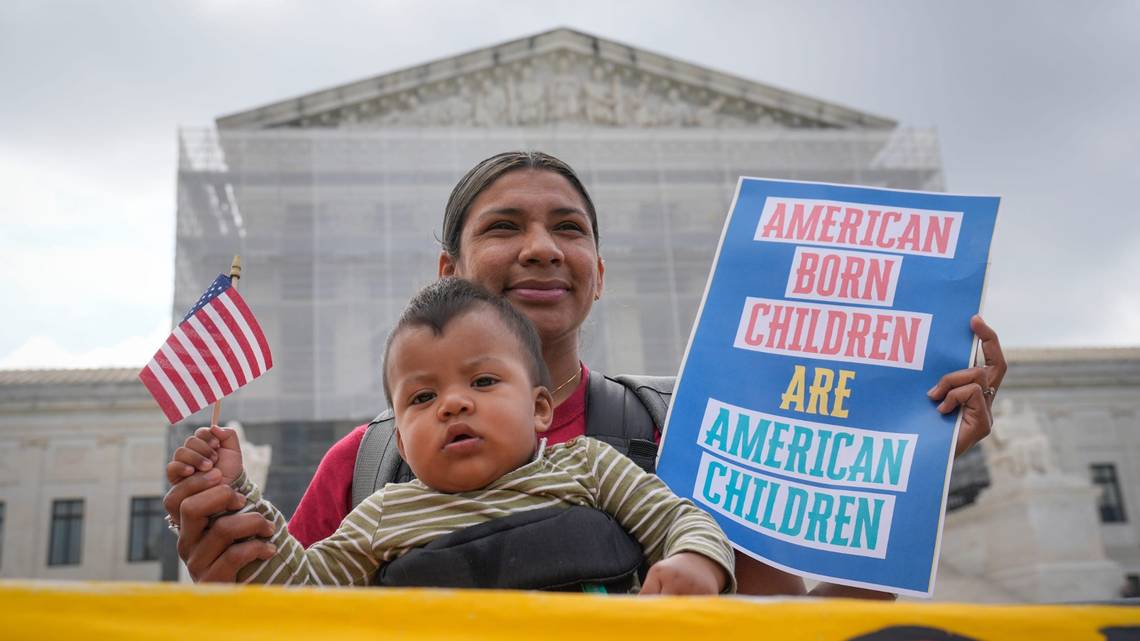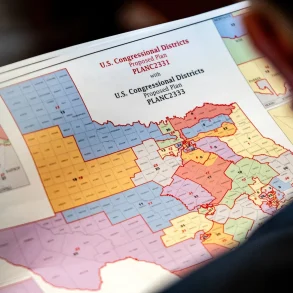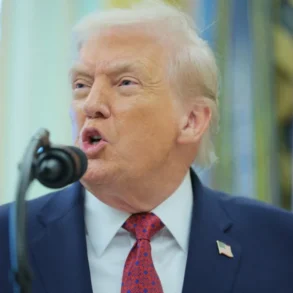On May 15, 2025, the U.S. Supreme Court dove into a heated debate over President Donald Trump’s executive order to end birthright citizenship for children born to undocumented or temporary immigrants. Signed on his first day in office, the order challenges the 14th Amendment, which grants citizenship to anyone born on U.S. soil. Lower courts have blocked the policy nationwide, but the Trump administration is fighting to enforce it while lawsuits continue. The case also tests the power of federal judges to issue nationwide injunctions, raising questions about judicial authority and the future of American citizenship.
The Heart of the Issue
The 14th Amendment, ratified post-Civil War, states: “All persons born or naturalized in the United States, and subject to the jurisdiction thereof, are citizens of the United States.” For over a century, this has meant automatic citizenship for nearly all U.S.-born children, a principle upheld by an 1898 Supreme Court ruling. Trump’s executive order, however, argues that children of undocumented immigrants aren’t “subject to the jurisdiction” of the U.S., seeking to deny them citizenship. Critics, including 22 states led by Washington Attorney General Nick Brown, argue this violates the Constitution, with Brown calling it an “absurd” overreach that could create inconsistent citizenship rules across state lines.
A Divided Court
The Supreme Court’s 6-3 conservative majority showed mixed reactions. Justice Brett Kavanaugh questioned the practical fallout, asking how hospitals and states would handle newborns under the policy. Solicitor General D. John Sauer admitted the government has just 30 days to figure it out, raising doubts about readiness. Liberal justices like Elena Kagan and Sonia Sotomayor pushed back hard. Kagan noted that every lower court has ruled against the administration, warning that only those who can’t afford lawsuits would suffer. Sotomayor highlighted the risk of “stateless” children, denied citizenship here and abroad.
The Bigger Picture: Nationwide Injunctions
The case isn’t just about citizenship—it’s about judicial power. Since Trump’s second term began, lower courts have issued 40 nationwide injunctions, halting parts of his agenda, from immigration to deportation policies. The administration argues these injunctions overstep Article III of the Constitution, while defenders say they protect rights. Conservative justices like Clarence Thomas, who called such injunctions “dubious,” seem open to limiting them, which could let the policy take effect in some states. This debate unfolds on the Supreme Court’s “shadow docket,” where rushed decisions on emergency appeals are increasingly common, a trend Justice Kagan has called “relentless.”
What’s at Stake
With 4.4 million U.S.-born children living with undocumented parents, the ruling could affect millions. A decision, expected by June, might redefine citizenship or reshape how courts check executive power. As Justice Sotomayor said, the Court’s role is to “stand up for people who can’t do it themselves.” The outcome will decide whether the 14th Amendment’s promise holds firm or if geography and wealth will determine who gets to be an American.








